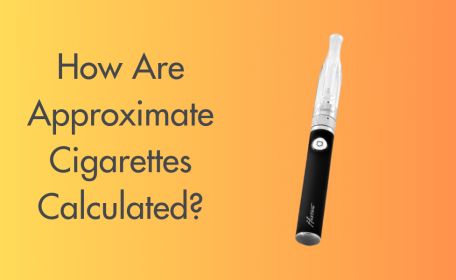← Back

Survey confirms ecigs do not glamorise smoking

Despite the fact that many politicians have made a point of criticising the electronic cigarette market for "glamorising" smoking, a survey by the Harvard School of Public Health has cast a very different light on this particular subject. The survey took in the results from a 2012 questionnaire across 26,500 people living in various EU member states and the results are very interesting to say the least.
The survey showed that while 20% of current tobacco cigarette smokers had tried electronic cigarettes, just 4% of those trying the devices were former smokers and 1.1% non-smokers. So, despite the fact that many politicians would have you believe that electronic cigarettes are a "gateway" to their tobacco counterparts, indeed this survey (along with many others) seems to suggest the exact opposite.
Young heavy smokers take up electronic cigarettes
Perhaps one of the more surprising elements of this survey was the fact that many young cigarette smokers have a heavy tobacco intake and are looking to reduce this via electronic cigarettes. While all parties for and against the electronic cigarette industry acknowledge that long-term medical trials are still required, many experts believe that at worst electronic cigarettes are far less harmful than their tobacco counterparts with some experts suggesting they are 99% less harmful. Whatever the "real figure", young heavy tobacco smokers switching to electronic cigarettes may indeed have some benefits in the longer term?
 Previous surveys
The University of California San Francisco released a survey in March 2014 which suggested significant use of electronic cigarettes in those aged between 12 and 18. The suggestion was that electronic cigarettes were for many a potential gateway to their tobacco counterparts. However, this particular survey did not clarify how many of these young smokers were actually tobacco users at the time. In many ways this weakens the argument put forward by the University of California San Francisco, although it did cause some confusion at the time.
The vast majority of surveys of late have shown minimal take-up of electronic cigarettes amongst those who had never smoked tobacco cigarettes in their lives. Many people seem to see electronic cigarettes as a means of reducing their tobacco intake despite the fact they cannot be marketed as smoking cessation aids.
Clarifying the situation
Slowly but surely a number of new surveys are casting a very different light on the electronic cigarette industry, contrary to what many politicians would have you believe. There is an ongoing battle between the electronic cigarette industry, vaping enthusiasts and governments across the world with a suggestion that falling tobacco tax income is also playing a role. There is obviously a need for a regulatory framework in the short, medium and longer term although many believe this regulatory framework should be relatively light touch to allow the market to grow.
Conclusion
Comparing the Harvard School of Public Health survey to that produced by the University of California San Francisco casts two very different lights on the electronic cigarette market. There is a need for clarity, there is a need for openness and there is a need to give the general public the wider picture. Only then will the public be able to make up their own minds about electronic cigarettes and the perceived benefits compared to their tobacco counterparts. The electronic cigarette industry has been asking for a level playing field for some time now and finally it seems as though we can have a detailed and thorough discussion about all aspects of the industry.
This article was provided by Mark Benson from OKCigs.co.uk, a UK based retailer of electronic cigarettes and eliquids.
Previous surveys
The University of California San Francisco released a survey in March 2014 which suggested significant use of electronic cigarettes in those aged between 12 and 18. The suggestion was that electronic cigarettes were for many a potential gateway to their tobacco counterparts. However, this particular survey did not clarify how many of these young smokers were actually tobacco users at the time. In many ways this weakens the argument put forward by the University of California San Francisco, although it did cause some confusion at the time.
The vast majority of surveys of late have shown minimal take-up of electronic cigarettes amongst those who had never smoked tobacco cigarettes in their lives. Many people seem to see electronic cigarettes as a means of reducing their tobacco intake despite the fact they cannot be marketed as smoking cessation aids.
Clarifying the situation
Slowly but surely a number of new surveys are casting a very different light on the electronic cigarette industry, contrary to what many politicians would have you believe. There is an ongoing battle between the electronic cigarette industry, vaping enthusiasts and governments across the world with a suggestion that falling tobacco tax income is also playing a role. There is obviously a need for a regulatory framework in the short, medium and longer term although many believe this regulatory framework should be relatively light touch to allow the market to grow.
Conclusion
Comparing the Harvard School of Public Health survey to that produced by the University of California San Francisco casts two very different lights on the electronic cigarette market. There is a need for clarity, there is a need for openness and there is a need to give the general public the wider picture. Only then will the public be able to make up their own minds about electronic cigarettes and the perceived benefits compared to their tobacco counterparts. The electronic cigarette industry has been asking for a level playing field for some time now and finally it seems as though we can have a detailed and thorough discussion about all aspects of the industry.
This article was provided by Mark Benson from OKCigs.co.uk, a UK based retailer of electronic cigarettes and eliquids.

 Previous surveys
The University of California San Francisco released a survey in March 2014 which suggested significant use of electronic cigarettes in those aged between 12 and 18. The suggestion was that electronic cigarettes were for many a potential gateway to their tobacco counterparts. However, this particular survey did not clarify how many of these young smokers were actually tobacco users at the time. In many ways this weakens the argument put forward by the University of California San Francisco, although it did cause some confusion at the time.
The vast majority of surveys of late have shown minimal take-up of electronic cigarettes amongst those who had never smoked tobacco cigarettes in their lives. Many people seem to see electronic cigarettes as a means of reducing their tobacco intake despite the fact they cannot be marketed as smoking cessation aids.
Clarifying the situation
Slowly but surely a number of new surveys are casting a very different light on the electronic cigarette industry, contrary to what many politicians would have you believe. There is an ongoing battle between the electronic cigarette industry, vaping enthusiasts and governments across the world with a suggestion that falling tobacco tax income is also playing a role. There is obviously a need for a regulatory framework in the short, medium and longer term although many believe this regulatory framework should be relatively light touch to allow the market to grow.
Conclusion
Comparing the Harvard School of Public Health survey to that produced by the University of California San Francisco casts two very different lights on the electronic cigarette market. There is a need for clarity, there is a need for openness and there is a need to give the general public the wider picture. Only then will the public be able to make up their own minds about electronic cigarettes and the perceived benefits compared to their tobacco counterparts. The electronic cigarette industry has been asking for a level playing field for some time now and finally it seems as though we can have a detailed and thorough discussion about all aspects of the industry.
This article was provided by Mark Benson from OKCigs.co.uk, a UK based retailer of electronic cigarettes and eliquids.
Previous surveys
The University of California San Francisco released a survey in March 2014 which suggested significant use of electronic cigarettes in those aged between 12 and 18. The suggestion was that electronic cigarettes were for many a potential gateway to their tobacco counterparts. However, this particular survey did not clarify how many of these young smokers were actually tobacco users at the time. In many ways this weakens the argument put forward by the University of California San Francisco, although it did cause some confusion at the time.
The vast majority of surveys of late have shown minimal take-up of electronic cigarettes amongst those who had never smoked tobacco cigarettes in their lives. Many people seem to see electronic cigarettes as a means of reducing their tobacco intake despite the fact they cannot be marketed as smoking cessation aids.
Clarifying the situation
Slowly but surely a number of new surveys are casting a very different light on the electronic cigarette industry, contrary to what many politicians would have you believe. There is an ongoing battle between the electronic cigarette industry, vaping enthusiasts and governments across the world with a suggestion that falling tobacco tax income is also playing a role. There is obviously a need for a regulatory framework in the short, medium and longer term although many believe this regulatory framework should be relatively light touch to allow the market to grow.
Conclusion
Comparing the Harvard School of Public Health survey to that produced by the University of California San Francisco casts two very different lights on the electronic cigarette market. There is a need for clarity, there is a need for openness and there is a need to give the general public the wider picture. Only then will the public be able to make up their own minds about electronic cigarettes and the perceived benefits compared to their tobacco counterparts. The electronic cigarette industry has been asking for a level playing field for some time now and finally it seems as though we can have a detailed and thorough discussion about all aspects of the industry.
This article was provided by Mark Benson from OKCigs.co.uk, a UK based retailer of electronic cigarettes and eliquids.

























